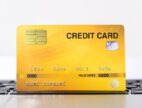What Personal Loans Should You Think Twice Before Getting?
by Abdul Aziz Mondal Loans & Credit Published on: 30 March 2023 Last Updated on: 25 September 2024

The accessibility and convenience of personal loans can make them a tempting option for individuals in need of financial assistance. Personal loans are a type of unsecured loan that can be used for various purposes, including debt consolidation, home repairs, or unexpected expenses. However, while personal loans can be a valuable resource for those in need, it is important to exercise caution when considering them.
Let’s see first, what is the benefit of obtaining a personal loan.
Why Should You Go For The Personal Loan?
Personal loans often come with high-interest rates and fees and can be a risky financial decision if not approached carefully. By taking an informed approach to personal loans, individuals can make the best decision for their financial well-being.
Here are the advantages of obtaining a personal loan.
- A personal loan can help you with paying for emergency expenses without touching savings.
- They enable you to cover the higher-interest debt. …
- You can use the mount for your personal expenses and leisure.
- The payment is scheduled.
Types Of Personal Loans To Think Twice About
Title Loans are a type of personal loan that requires the borrower to put up their car or vehicle as collateral. While title loans can be tempting due to their fast approval process and accessibility, they often come with extremely high-interest rates, putting the borrower at risk of losing their vehicle if they cannot make payments.
Title loans should be approached with extreme caution, as they can lead to a cycle of debt that can be difficult to escape.
Cash Advances on Credit Cards allow borrowers to access cash quickly by using their credit card, but they often come with steep fees and high-interest rates.
While they may be a convenient option for emergency situations, it is important to consider the long-term financial implications before taking a cash advance on a credit card. High-interest rates and fees can quickly accumulate, making it difficult for borrowers to pay off the balance.
Unsecured Personal Loans with High-Interest Rates are personal loans that do not require collateral but often come with very high-interest rates. While unsecured personal loans can be a valuable resource for individuals in need of financial assistance, it is important to be cautious when considering them.
High-interest rates can result in borrowers paying significantly more than the original loan amount and can be difficult to pay off in a timely manner. It is important to carefully consider the terms and conditions of any personal loan, especially those with high-interest rates, to avoid falling into a cycle of debt.
Why Credit Scores Matter When Applying For Personal Loans
Credit scores are a numerical representation of an individual’s creditworthiness and financial history. They are calculated based on factors such as payment history, credit utilization, length of credit history, and credit inquiries. The range of credit scores is going up from 300 to 850. Also, higher scores indicate better creditworthiness and lower scores indicate higher risk.
Credit scores are an important factor in personal loan applications as they are used by lenders to assess the borrower’s likelihood of repaying the loan. A good credit score can lead to lower interest rates with better loan terms, and a poor amount of credit score can result in higher interest rates, fees, or even loan denial.
In these cases, online payday loans with no credit check can be an alternative option for those in need of a quick solution. No credit check allows people with poor credit scores or no credit history to have access to loans still. However, it is important for individuals to carefully consider the terms and their ability to repay the loan before applying.
Individuals need to understand their credit score and credit history before applying for a personal loan, as it can impact their chances of approval and the loan terms.
Applying for personal loans with poor credit scores can be risky, as it often leads to higher interest rates, fees, and the potential for denial. In some cases, lenders may require collateral or co-signers for individuals with poor credit scores, putting the borrower at further risk if they are unable to make payments.
Additionally, high-interest rates and fees can result in borrowers paying significantly more than the original loan amount, making it difficult to pay off the balance. It is important for individuals with poor credit scores to carefully consider their options before applying for a personal loan and to explore alternative options, such as improving their credit score or seeking assistance from credit counseling services.
Alternatives To High-Risk Personal Loans
Building credit is a viable option for individuals who want to qualify for traditional personal loans with better terms and lower interest rates. This can be done by paying bills on time, reducing credit card balances, and disputing any errors on credit reports. It may take some time to build up a good credit score, but it can lead to better loan options in the future.
Borrowing from family or friends can be an alternative to high-risk personal loans, eliminating the need for credit checks and interest rates. However, treating the arrangement as a formal loan is essential, and establishing clear repayment terms to maintain relationships is important.
Credit counseling services offer financial education, debt management plans, and other resources to help individuals manage their debt and improve their financial situation. They can help individuals understand their credit reports, develop a budget, and negotiate with creditors to lower interest rates and fees.
Negotiating with creditors can be an option for individuals struggling with debt, leading to lower interest rates, waived fees, or extended payment terms. It is important to communicate with creditors and explain the situation, as they may be willing to work with individuals to avoid default or bankruptcy.
Government financial assistance programs, such as grants or loans, can be available to individuals in specific situations, such as low-income households, small business owners, or students. Researching and understanding these programs’ eligibility requirements and terms is essential before applying.
To Sum It All Up
This article highlighted the types of personal loans that individuals should think twice about, such as title loans, cash advances on credit cards, and unsecured personal loans with high-interest rates. It also emphasised the importance of credit scores in personal loan applications and the risks associated with applying for personal loans with poor credit scores. However, there are alternatives to high-risk personal loans, such as building credit, borrowing from family or friends, seeking credit counseling services, negotiating with creditors, and exploring government financial assistance programs.
It is crucial for individuals to make informed decisions when considering personal loans and to understand the risks and alternatives available to them. By doing so, individuals can avoid the pitfalls of high-risk personal loans and find more manageable solutions for their financial needs.
Read Also:



































































































